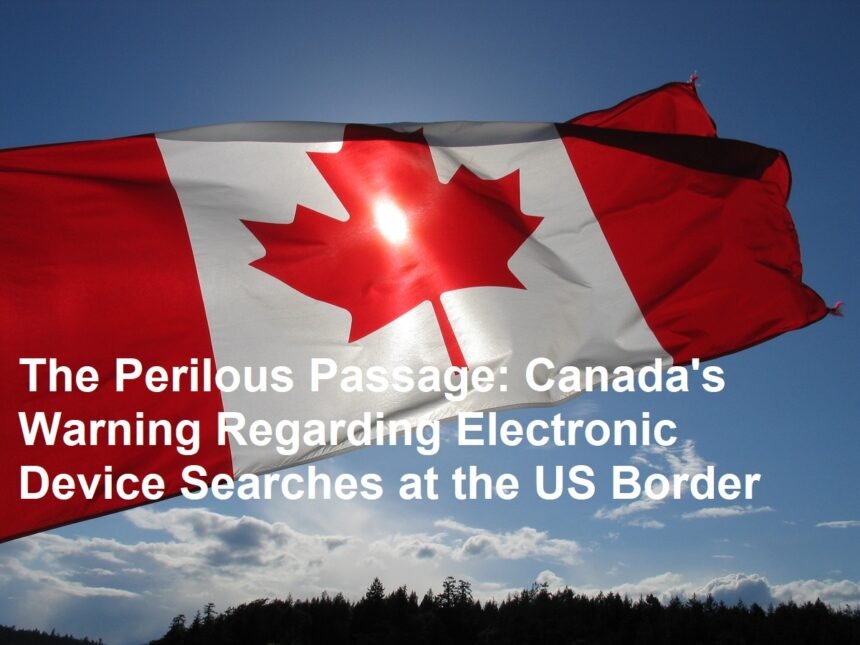On Saturday, April 5th, 2025, the Canadian government issued a formal travel advisory to its citizens contemplating travel to the United States, focusing specifically on the growing concern regarding the search of electronic devices at the Canadian-American border. This advisory highlights a sensitive issue that transcends simple border security, touching upon concerns about privacy, national sovereignty, and the potential for abuse of authority. The Canadian government’s unprecedented action underscores the gravity of the situation and the potential for significant disruption and discomfort for Canadian citizens engaging in cross-border travel.
The core of the issue lies in the assertion that US border agents are increasingly conducting searches of electronic devices, such as smartphones, laptops, and tablets, without necessarily requiring a clear or justifiable reason. This practice deviates from traditional customs and immigration procedures where reasonable suspicion or probable cause was typically required to initiate a search. The potential for unfettered access to personal information, including sensitive emails, private photographs, financial documents, and even personal contacts, raises profound ethical and legal questions.
The Canadian government’s warning is not merely a precautionary measure; it signals a serious concern about the potential for overreach by US border authorities. The advisory implies that the current practices undermine the expected level of privacy and security for Canadians crossing the border. By explicitly mentioning the lack of clear justification for these searches, the Canadian government is challenging the premise upon which these searches are being conducted. The implication is that such searches could potentially violate international norms and potentially infringe on the rights of Canadian citizens.
This situation carries significant implications for the relationship between Canada and the United States. The historically close ties between the two nations, built on mutual respect and cooperation, are potentially strained by such practices. The Canadian government’s public expression of concern indicates a breakdown in trust and potentially signals a need for renegotiation of border security protocols. If left unaddressed, this issue could lead to a significant chilling effect on cross-border travel and economic activity, impacting tourism, trade, and the exchange of ideas between the two nations.
The effectiveness of such a travel advisory remains to be seen. While it serves to inform Canadian citizens about potential risks and encourages them to take precautions, it does not fundamentally alter the power dynamics at the border. Canadians traveling to the United States are ultimately subject to the laws and regulations of the US, including the authority granted to border agents. The advisory’s primary purpose is likely to empower individuals to make informed decisions about their travel plans and to be prepared for potential scrutiny.
In conclusion, the Canadian government’s warning regarding electronic device searches at the US border represents a significant development in the ongoing discussion about border security, privacy rights, and international relations. It highlights the challenges of balancing national security concerns with the fundamental rights of individuals. This advisory serves as a crucial reminder that crossing international borders is increasingly complex and that travelers must be aware of the potential risks and prepared to navigate evolving security procedures. The long-term ramifications of this situation will likely depend on the willingness of both governments to engage in constructive dialogue and find mutually acceptable solutions that respect the principles of privacy, national sovereignty, and the enduring friendship between Canada and the United States.












